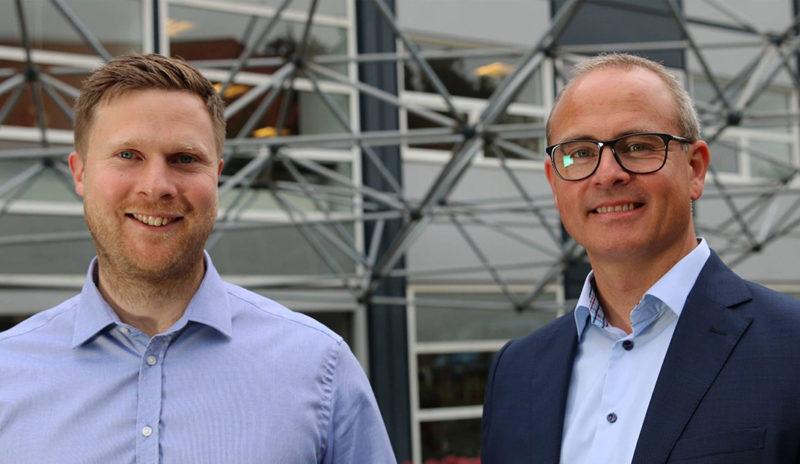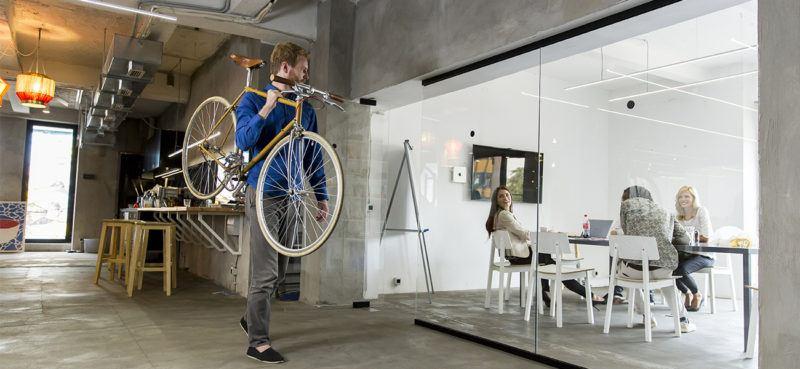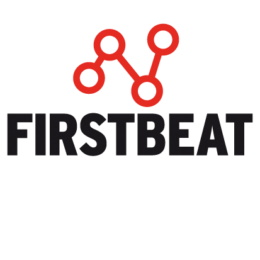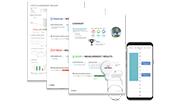
Firstbeat’s heartrate variability-based insights into stress, recovery, sleep and exercise were recently used in a campaign involving Mosodi and Salford Royal Hospital. Here we take a look at the campaign and hear from three participants.
What did the campaign involve?
1Day a Week is a behavioral nudge campaign led by transport and sustainability planning services company, Mosodi. It uses behavioral science at its heart to reduce the negative impacts associated with excessive car use and create a lasting and beneficial cultural change within the business in terms of reduced costs, higher productivity, lower sickness levels, higher levels of staff contentment, etc.
The 1Day a Week campaign was launched at the Salford Royal Hospital in May 2019 with the overarching goal to reduce single car occupancy and increase the number of staff travelling by more active and sustainable modes. The campaign aims to help all staff improve their health and well-being and reduce their stress levels as well as their personal carbon footprint.
Firstbeat’s Role
As part of the initial campaign roll out, seven members of Salford Royal Hospital staff conducted the Firstbeat Lifestyle Assessment. The results from the three-day measurement were then used to review the impact, and success of, the 1Day a Week campaign. The hypothesis being that more active people would experience reduced stress in their everyday lives.
Chris Taylor, Sustainable Travel Advisor at Mosodi, said:
“Firstbeat has allowed us to inspire and inform people on how a healthy commute can make huge differences to human health and well-being. They’ve given us an aspect to our narrative that we never had before on this message that is critically both fascinating and inspirational.”
What the Participants Said
Alan

Alan, 51, is a facilities manager. He took part in the project because he was “encouraged by colleagues to take part and admitted he could be lazy at times”.
What impact did taking part in the study have?
“I made a conscious effort to increase my physical activity during the measurement. For instance, I started to walk home from work when we started the Firstbeat Lifestyle Assessment, which is about three miles. On days I had to drive I went for a swim, or to the gym or for a walk instead.”
“The Lifestyle Assessment works because it is very personal to you. For example, the results showed that I need to relax more during the workday. That wasn’t something I’d thought about before. Two things really hit home for me after receiving the data. Firstly, the importance of relaxation and recovery during the day. Without it, stress levels just keep going up. Secondly, the realisation that being unfit can delay recovery.
Having the data explained to me by an expert was interesting, too, as it made it easier to interpret and pinpoint parts of my routine that I could change.”
Have you made any long-lasting changes?
“Driving to work would be an inconvenience now. Since the study, I now get lift in and then walk home. I’ve also bought a wrist wearable which helps with motivation. And I’ve gone from taking four diabetes medications a day to just one.”
Sarah

Sarah is a consultant and former professional cyclist. She was motivated to take part in the project as she was interested to see the impact of physical activity and fitness on her wellness.
What impact did taking part in the campaign have?
“I used to be really athletic, now I only cycle to work and walk the dogs. Conducting the Firstbeat Lifestyle Assessment has, though, reassured me that I don’t need to stress too much about my fitness anymore.
It’s easy to slip into a regular routine and the Assessment helped me look at my lifestyle with fresh eyes.”
“It did show that my recovery wasn’t great during my usual routine and the working week does take a lot out of me. For example, one 20-minute nap during the measurement showed by body was “wired” rather than relaxed at all. So, I now make sure I’ve stopped for downtime by 9pm every evening and I’ve taken up yoga in the evenings which helps clear my mind. I’ve noticed a difference in my workday.
Have you made any long-lasting changes?
“I rarely drive now, and I sometimes feel guilty if I do. I enjoy cycling home instead and taking the time to enjoy the fresh air.I actually feel more relaxed when I get home. I even go out cycling in the rain, it gives me a sense of pride and helps me feel good after.
“Cycling to work has become part of my routine and my training and I even make it a challenge at times by cycling in a higher gear etc.”
Olivier

Olivier, 46, is a Consultant Physician in Acute Medicine. He took part in the study to try to understand objectively how active commuting affected his overall levels of stress at home and whether there were any areas he could improve
What impact did taking part in the study have?
“The Firstbeat Lifestyle Assessment is an objective look at yourself and it’s helped me become more self-aware. The knowledge you gain is useful to all – from those considering improving their fitness to those who do a lot of exercise. It was reassuring to see I could maintain my fitness through active commuting and boost it with separate training in the week.
“Before the Assessment, recovery for me used to just be sitting around. Now I appreciate the concept of recovery and that it is more about being relaxing your body and mind and I respect the importance of properly winding down.”
The info I received was really enlightening, even as a medical professional, and the feedback discussion was extremely helpful.”
Have you made any long-lasting changes?
“I learned what you do before sleep is so important to kickstart the recovery process, so I make a conscious effort to switch off earlier before bed. I also understand that physical activity close to bedtime takes its toll. On the days I train in the evening, I try to ensure some daytime recovery is part of my plan.
“I now see driving as dead time, especially when stuck in traffic. It can drive you bonkers and raise stress levels. It is less pleasurable, and you have to constantly be vigilant. I’ve got rid of my gym membership and cycle or run to work instead. Active commuting has become a routine. It’s much more pleasurable to spent time outside before or after work. The weather doesn’t even bother me anymore, I even find myself smiling about the rain and I’m pleased I’ve done it when I get home!”
If you liked this article, you should subscribe to our newsletter.
You might also be interested in

Corporate Wellness and World Class Athletes: Same Technology, Different Uses
Monitoring internal physiology is an effective tool in the pursuit of performance in professional sports, but also in the office.

The Role of a Follow-up Firstbeat Lifestyle Assessment in Achieving Behavior Change
Introducing a follow-up Firstbeat Lifestyle Assessment to your wellness program can help quantify, validate and embed behavior change in the long-term.

Want to Boost Your Productivity at Work? Here’s How Increasing Physical Activity Can Help
Introducing physical activity into your routine can improve multiple areas important for workplace productivity.


